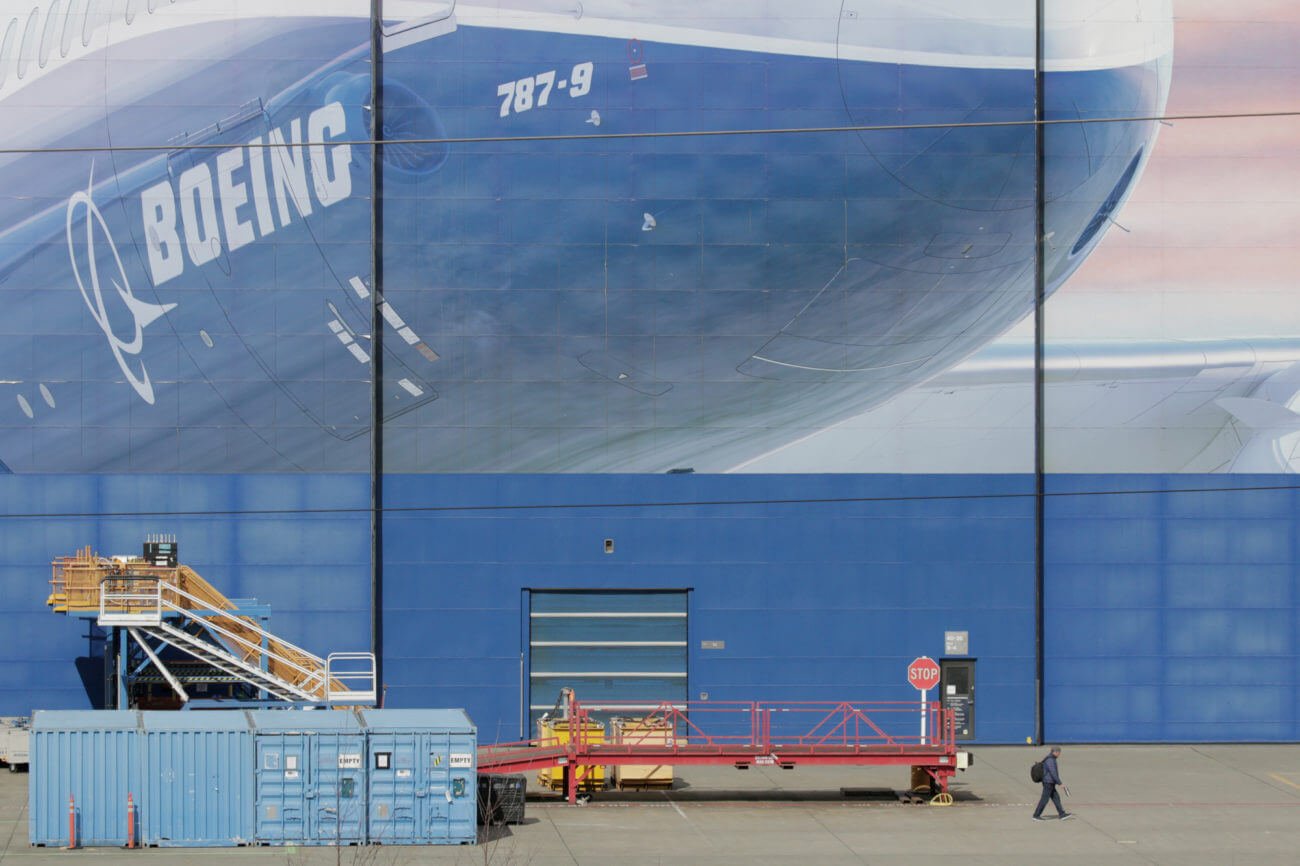
Engulfed in controversy and global pandemic, Boeing announces drastic cost-cutting measures. But there’s nothing guaranteeing the company’s long-term survival. | Image: REUTERS/David Ryder/File Photo
- Boeing reported an adjusted per-share loss of $1.70 in the first quarter on revenue of $16.91 billion. Both figures were worse than expected.
- After announcing several cost-cutting measures, Boeing’s stock rallied Wednesday morning.
- The company suffers long-term reputational damage due to the ongoing Max 737 crisis.
The survival of Boeing (NYSE:BA) is no longer a guarantee.
On Wednesday, the embattled aerospace contractor announced significant cost-cutting measures after burning through $4.3 billion in cash during the first quarter.
Nevertheless, BA shares traded sharply higher at the start of the New York session.
Boeing’s Disastrous Earnings Report
The Chicago-based aerospace manufacturer posted a first-quarter loss of $641 million. On a per-share basis, Boeing’s losses amounted to $1.70 on revenue of $16.91 billion. The revenue figure was 26% lower than a year ago.
Analysts on Wall Street forecast an adjusted per-share loss of $1.61 on revenue of $17.30 billion.
Depressed earnings will force Boeing to undergo extreme cost-cutting measures as the company deals with an involuntary freeze on air travel due to the coronavirus pandemic. With U.S. air travel down 95% over year-ago levels, Boeing says it will slash production of its 787 Dreamliner and other fleets, as well as reduce payroll by about 10%.
The 10% reduction in staff equates to roughly 16,000 positions.
Boeing says commercial jet shutdown cost $1.73 billion in the first quarter:
Of course, Boeing’s troubles began long before Covid-19 was in the picture. The company has been reeling in the wake of two fatal crashes involving its Max 737 planes. That’s when the first wave of order cancellations began.
BA Stock Rallies
Despite reporting dismal top- and bottom-line results, Boeing’s stock rose sharply Wednesday as investors fixated on the company’s extreme cost-cutting initiatives. And despite burning through $4.3 billion in cash during the quarter, Boeing didn’t go through the roughly $9 billion analysts were expecting.
Another silver lining: Boeing expects to ramp up production to 31 planes per month next year. Much of that depends on the recertification process for its newest single-aisle jet.
BA shares jumped more than 5% at the start of trading, reaching an intraday high of $138.31.
Boeing shares rallied Wednesday morning, though trade volumes were only a fraction of the long-running average. | Chart: Yahoo Finance
As one of the most heavily-weighted companies in the Dow, Boeing’s rally helped push the benchmark index higher Wednesday morning. The Dow Jones Industrial Average opened 390 points higher, putting it on track for its fifth gain in the past six days.
Long-Term Dangers
Don’t let the rally fool you, though: Boeing’s stock is a hazardous investment. Over the past 52 weeks, BA shares have traded anywhere from $89.00 to $391.00, underscoring the inherent volatility at play.
So, while investors cheer the new cost-cutting measures, Boeing faces a spate of long-term issues tied to reputational damage, growing competition, and a debt-laden balance sheet. The potential downsizing of the airline industry could hit Boeing especially hard over the next two years.
The global airline industry is bracing for a lengthy recovery from the Covid-19 crisis. Data from OAG suggest it could take until 2022 or 2023 before air traffic returns to normal. Boeing might not have that kind of time to spare as its customers run out of cash.
Even if air traffic returns to normal sooner than expected, Boeing is getting buried by the Max 737 crisis. The fallout has already cost the company close to $19 billion–a figure that’s expected to rise significantly.
Disclaimer: The author holds no investment position in Boeing at the time of writing.
This article was edited by Josiah Wilmoth.
Last modified: April 29, 2020 2:21 PM UTC






